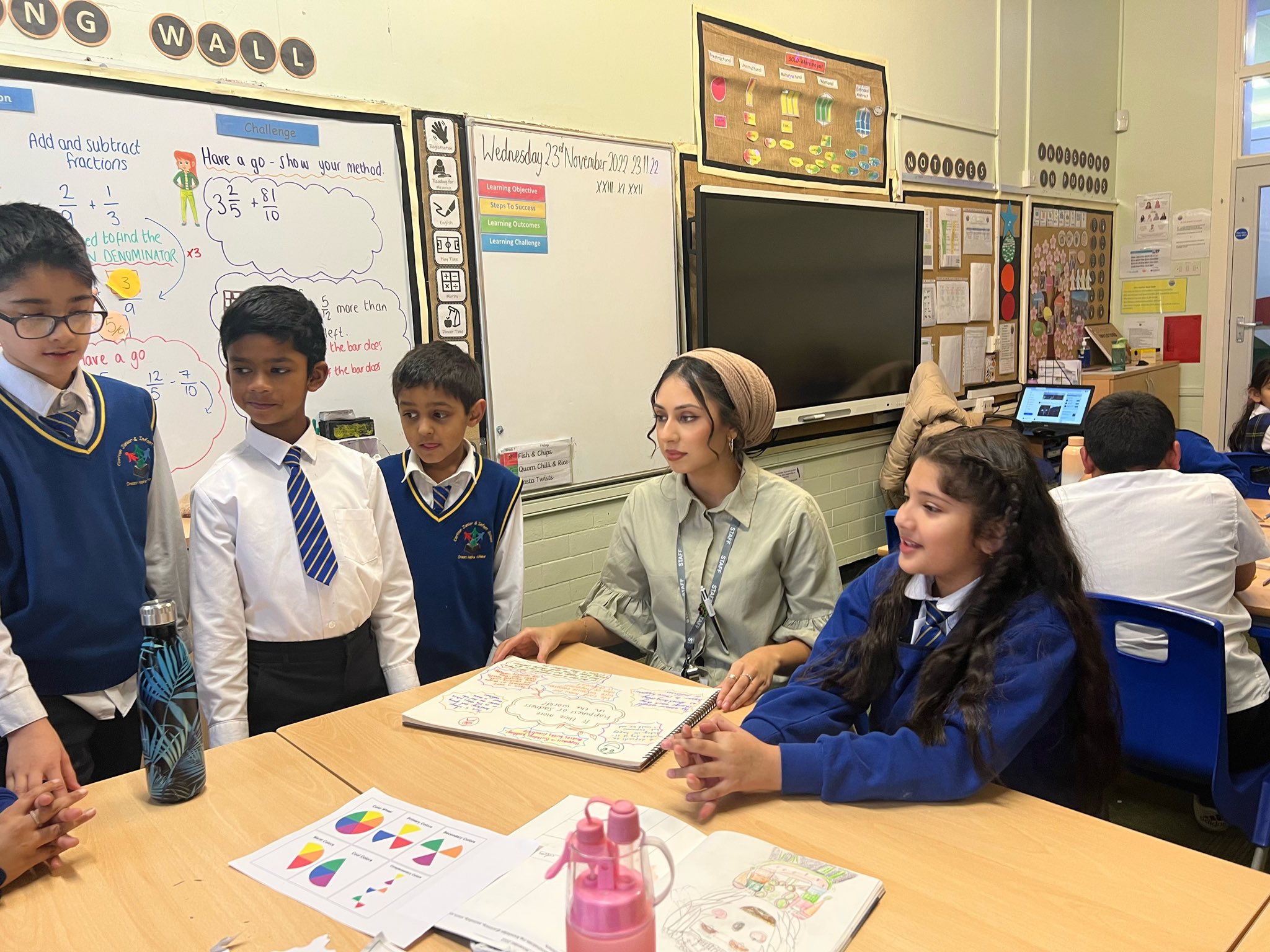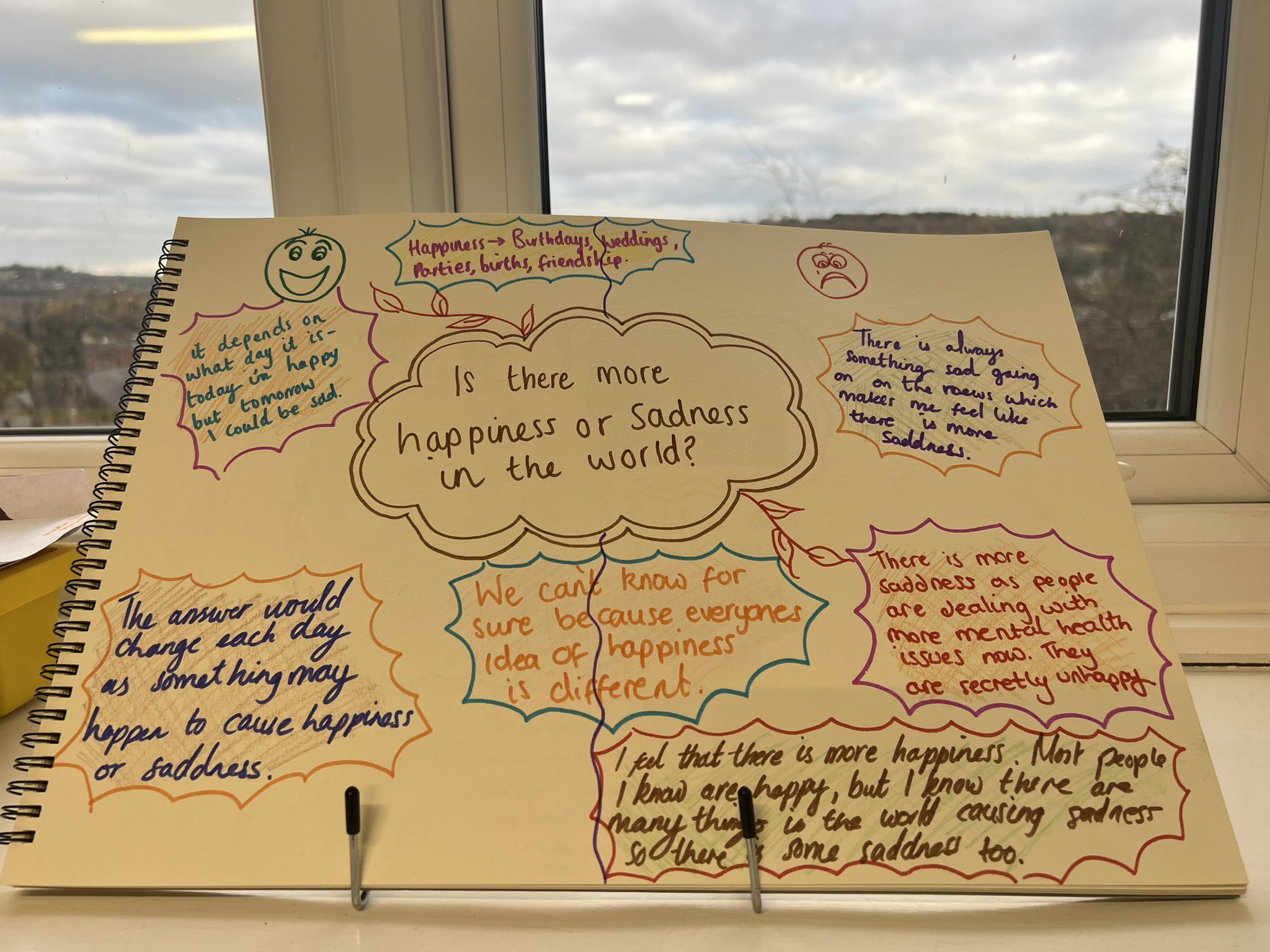Philosophy For Children
Intent
At Carlton Junior and Infant School, the children are given the opportunity to maximise their potential; intellectually, socially, morally, emotionally and culturally. Philosophy for children (P4C) is an opportunity for children to come together as a whole class to provide a platform for discussion and to reflect as individuals too. These sessions allow every child to speak freely without feeling pressure in an inclusive atmosphere. It gives the children a chance to voice their opinions and listen to their peers in a structured and nurturing environment. The aim of P4C at Carlton, is to develop children’s oracy and vocabulary, increasing confidence when speaking in front of a groups, to increase concentration span and to develop their thinking skills. We also aim to build respect between pupils through the opportunity to politely agree and disagree with thoughts and opinions. P4C helps children to become more critical thinkers and encourages them to transfer their philosophies into their written work. It is our aim that this will also become a chance for children to raise topics that they are particularly interested in and are relevant to them. The approach fostered through P4C will help to develop higher levels of self-esteem and intellectual confidence for our children. Pupils learn the skills to be clear in their thinking so that they can explain their ideas, give good reasons for their views and develop their vocabulary. It teaches patience, respect to others and a better understanding of the world around us.
Implementation
P4C promotes an enquiry-based curriculum where pupils are encouraged to ask questions and find the answers through discussion of social values. Therefore, children develop the ability to recognise differences and explore these constructively. P4C is taught through stand-alone lessons as well as through opportunities for purposeful cross curricular links, for example; reading and topic. P4C plays a vital part in our mission to promote the development of vocabulary by giving children engaging topics to discuss. P4C begins in Early Years, where children are able to discuss topics that are related to other curriculum areas and have time to rehearse vocabulary and discuss upcoming issues/scenarios. P4C continues through to Year 6, where discussions begin to encompass world and current affairs as well as social issues that may have direct influence upon the children’s lives. Our aim is that during pupil’s time at Carlton, children are able to respectfully debate issues, using their developing skills and language and improving their metacognition as a result.
A typical philosophy lesson starts with a game and then the children being given a stimulus, such as a picture book, a video or a piece of music or art. They will create a list of philosophical questions inspired by the stimulus – anything from, ‘Are friends more important than family?’ to, ‘Is it ever okay to steal?’ – and vote on which one to talk about. The class then has an ‘enquiry’ – an open dialogue – around that question.
P4C focuses on four main thinking skills:
- Caring – understanding others and being respectful of different opinions
- Collaborative – finding solutions together
- Creative – making connections and thinking of new ideas
- Critical – understanding what we think and why
We have at least one P4C lesson every week. All staff have been trained by Rebecca Gough (Permanent Education) and have had A-Z thinking moves training too.
Impact
Each lesson finishes with a debrief of enquiry. Here the children decide what has worked well and what could be improved. This is a fantastic opportunity for the children to self-assess themselves and their new learning and understanding. Each lesson builds on the previous and children’s skills are improved upon throughout each topic. It is also clear to see the progression of skills throughout the school through the children’s ability to discuss complex questions. The impact of P4C is to help pupils’ spiritual, moral, social and cultural development equipping them to be thoughtful, caring and active citizens in an inclusive school and in a diverse wider society. It will also prepare them to enter secondary education with the ability to think and articulate their opinions independently. Subject and school leaders monitor the impact of our curriculum provision through completing regular monitoring, that includes listening to the voice of our children.
“P4C is exciting because there is no right and wrong in the lesson and it has given me confidence in my own beliefs” (RH-Year 6).
“P4C lessons have aided me to develop my critical thinking skills which has encouraged me to think outside the box in all areas of my learning. I have learnt to challenge myself.” (ZM- Year 6)
“I love P4C lessons because the environment is safe to challenge each other and I feel okay to say pass if I do not want to share something.” (HH- Year 5)
Exploring Ideas
Year 5 discussed whether there is more happiness or sadness in the world. We shared our ideas and opinions and looked at the bigger picture; imagining the lives of others around the world.

























